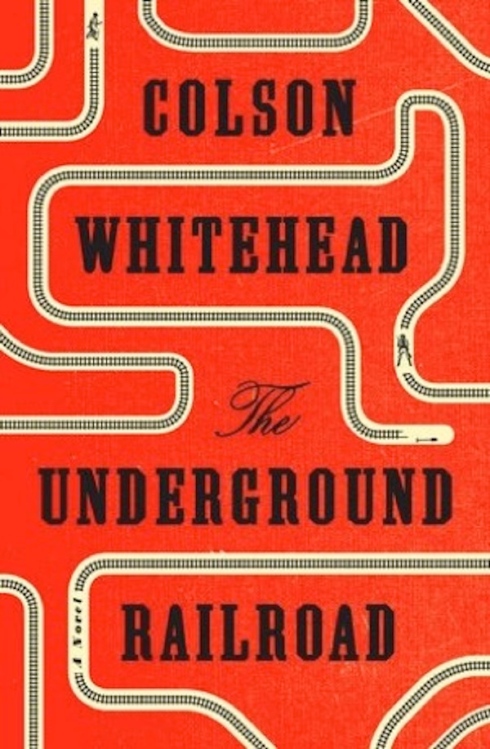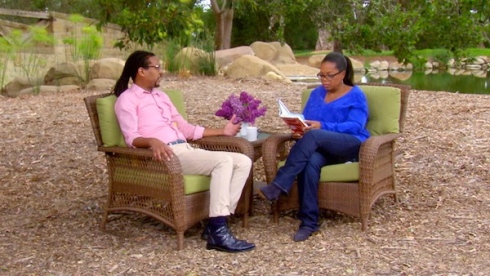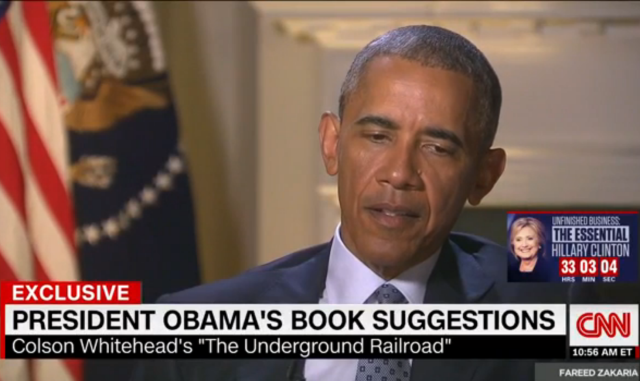Colson Whitehead
Brings the
Underground Railroad
to Life
Colson Whitehead is an award-winning novelist, a Pulitzer Prize finalist, a MacArthur Grant recipient and now (propelling him into our popular consciousness), on Oprah’s Book Club list for his latest work, The Underground Railroad. Taking his skills in writing speculative fiction and combining it with historical events, Whitehead portrays the story of slavery and the escape to freedom through a young girl’s passage on a literal Underground Railroad.
With the Vancouver Writers Festival now upon us (Oct. 17 to 23) and Colson Whitehead’s much-anticipated participation in the event, VITA chatted with the Harvard alum via phone to dig into his story-writing process and what led him to make the Underground Railroad real. —Michelle Gadd
What pleased you more, to find out your book was chosen for Oprah’s Book Club or that it was on Barack Obama’s summer reading list?
They’re both pretty good! It was a month of really good news in terms of how the reviews turned out and Oprah’s fans coming to pick up the book and then Obama taking it on vacation. So one wraps into one; a really great couple of weeks. Oprah picked up the book in April. I had just finished doing copy for it and wasn’t even thinking about publication and then we got the call out of the blue that she had picked it. They wanted to move the publication date and wanted it to be a surprise and keep it a secret. It turned things upside down.
Why did you decide to treat the Underground Railroad as literal?
I thought it would be a funny idea and it allowed me to talk about a lot of different things. When you bring that fantasy element to the historical record; I didn’t feel bound to keep my story in 1850. I could talk about a lot of different things and a lot of different historical events in conversation with each other so it’s really just playing with this ‘what if’ notion and then trying to see what story ideas I could piece out of it.
Who or what did you consult most for researching the historical basis for the book?
Not many who’s but some of the bigger slave narratives like Frederick Douglass. I went back to Harriet Jacobs again, there’s a history of slavery called Bound for Canaan that came out a couple years ago that was really helpful in grounding me in the main contours of the railroad and then in the 1930s the Federal Government paid for writers to interview former slaves: People who had been kids and teenagers at the time of slavery and it gave me really detailed nouns and verbs and adjectives to hopefully paint a good portrait of plantation life.
Why did you choose the voice of Cora, a young female slave, to tell the story of the Underground Railroad?
It’s not clear what her age is, but once she gets off the plantation and starts learning how to read and have different interactions her idea of the world changes and her place in it. I had a few male protagonists in a row so I wanted to mix it up. One of the first narratives I read in college 30 years ago was Harriet Jacobs’, Incidents in the Life of a Slave Girl. And I hadn’t done a mother-daughter relationship before, it allowed me to talk about a different experience of slavery from the male, which I thought I could do and it was more of a challenge.
I noticed a lot of articles mention that you have children and specifically state that you have an 11-year-old daughter. I wonder if that’s because they think it gives you insight into the psyche of a young girl?
No (laughs)! They’re quite different! Whenever you’re thinking of a protagonist or a supporting cast your drawing from yourself, your understanding of the world, your imagination and empathy so there’s not much of a template there.
Why do you think as a society we adore stories of individuals who fight their way to actual or psychological freedom?
I think, you know, for this book it’s an adventure novel. You’re running away from a very hellish place looking for refuge. The stakes are life and death, so that’s exciting. I think if you make a compelling protagonist that allows the readers to see themselves in her struggle and hopes and aspirations, it’s part of the job of making a credible main character.
Did you fear any expectations as an African-American writer who publishes a big book about race and freedom in the era of Black Lives Matter?
None. It didn’t cross my mind at all. Black Lives Matter comes together to raise awareness about police brutality. It’s not hard to draw a line between law enforcement in the slave patroller days and law enforcement now. The book is about race in America, history, and it wasn’t hard to broaden the conversation from the time of slavery to the way black people have been subjugated. It echoes throughout the decades in very similar ways.
In an interview with Vogue you say that in a few years time you don’t think the book will have a strong association with Black Lives Matters because our brief conversation about police brutality will be over. You compare it to Rodney King and the events in Ferguson. Does that mean you don’t have hope for change?
I think we progress very slowly. Change is very incremental. Perhaps 10 years from now people will pick up the book and there will be a brief conversation about police brutality. They seem to erupt every couple years. In terms of how I feel about hope, we can look to the fact that we have a black president as a sign of advancement and then we can look to Donald Trump and his racist, bigoted, rhetoric as a retreat from progress. So things happen very slowly.
So are you a Hillary supporter or voting third party?
It’s safe to say I’ll be voting for Hillary.
When writing on such a serious and dark subject matter how do you transition from your workday to family life? Is there a carry over of emotions?
Yeah I mean, I think when I was younger before I had kids I’d write during the night and that was my whole life. And now definitely my four-six hour window when I’m working is when I’m working and I’m not really thinking about it that much afterwards except in a casual way. I think it helps that my office is in the basement so I come down into my little hellhole and then I come up and it’s a different place. It’s a lot more full of life. I do most of the cooking in my house so once I’m finished working I’m figuring out what I’m going to make for dinner, getting ingredients and I cook and sit down with the family. So overtime I became less obsessive about work and more able to keep it separate.
You finish the last sentence of an epic novel that took years to formulate. What do you do next?
I went back to the start of the chapter and started revising (laughter)!
There was no putting your head down in relief and saying, “It’s done!?”
Yeah, I mean at the end of the day but in that moment you just go back and try to get the days work into a little better order. And then at the end of the day there’s definitely some wine drinking and that sort of thing.
Have you already started on your next book?
I haven’t. I finished the book last December and then there were edits, and copy edits and publication came pretty quickly so I’m just going to chat about the book, take some naps, see some movies and then get back to work in the Spring.
What do you want the reader to take away from reading The Underground Railroad? What impression?
It’s open to the reader’s interpretation of where we last see Cora. It’s not an academic book. I’m not trying to teach people about slavery or how they should feel about history. I think if in the course of my journey writing the book what I’ve come up with allows people to think about history or race or themselves in a different way or from a different perspective, I think that’s a perfectly fine goal. Not too lofty or outlandish. That it wasn’t a waste of time to pick it up.
© Copyright 2016 – See more at: http://www.vitadaily.ca/culture/colson-whitehead-brings-the-underground-railroad-to-life-1.2366649#sthash.LvFhMfqF.dpuf
>via: http://www.vitadaily.ca/culture/colson-whitehead-brings-the-underground-railroad-to-life-1.2366649





